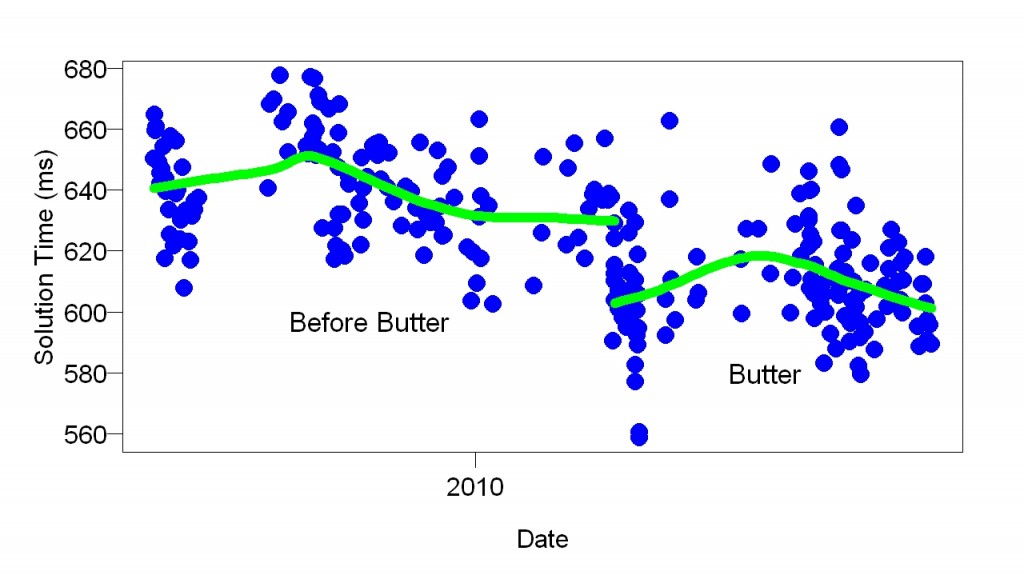On Tuesday I gave a talk called “Arithmetic and Butter” at the Quantified Self meeting in Sunnyvale. I had about 10 slides but this one mattered most:

It shows how fast I did simple arithmetic problems (e.g., 2*0, 9-6, 7*9) before and after I started eating 1/2 stick (60 g) of butter every day. The x axis covers about a year. The butter produced a long-lasting improvement of about 30 msec.
I think the hill shape of the butter function is due to running out of omega-3 in Beijing — my several-months-old flaxseed oil had gone bad, even though it had been frozen. When I returned to Berkeley and got fresh flaxseed oil, my scores improved.
This isn’t animal fat versus no animal fat. Before I was eating lots of butter, I was eating lots of pork fat. It’s one type of animal fat versus another type. Nor is it another example of modern processing = unhealthy. Compared to pork fat, butter is recent.
Most scientists think philosophy of science is irrelevant. Yet this line of research (measuring my arithmetic speed day after day, in hopes of accidental discovery) derived from a philosophy of science, which has two parts. First, scientific progress has a power-law distribution. Each time we collect data, we sample from a power-law-like distribution. Almost all samples produce tiny progress; a very tiny fraction produce great progress. Each time you collect data, in other words, it’s like buying a lottery ticket. I realized that a short easy brain-function test allowed me to buy a large number of lottery tickets at low cost. Second, we underestimate the likelihood of extreme events. Nassim Taleb has argued this about the likelihood of extreme negative events (which presumably have a power-law distribution); I’m assuming the same thing about extreme positive events (with a power-law distribution). We undervalue these lottery tickets, in other words. Perhaps all scientists hope for accidental discoveries. I seem to be the first to use a research strategy that relies on accidental discoveries.
In the graph, note that one point (actually, two) is down at 560 msec. This suggests there’s room for improvement.
